This post may contain affiliate links. Please read our disclosure policy.
Boldly spiced and ultra-flavorful Mexican Chorizo can be intimidating if you’ve never tried cooking with it. Here’s your definitive guide to what it is, how it’s made, and how to use it in delicious Mexican dishes!
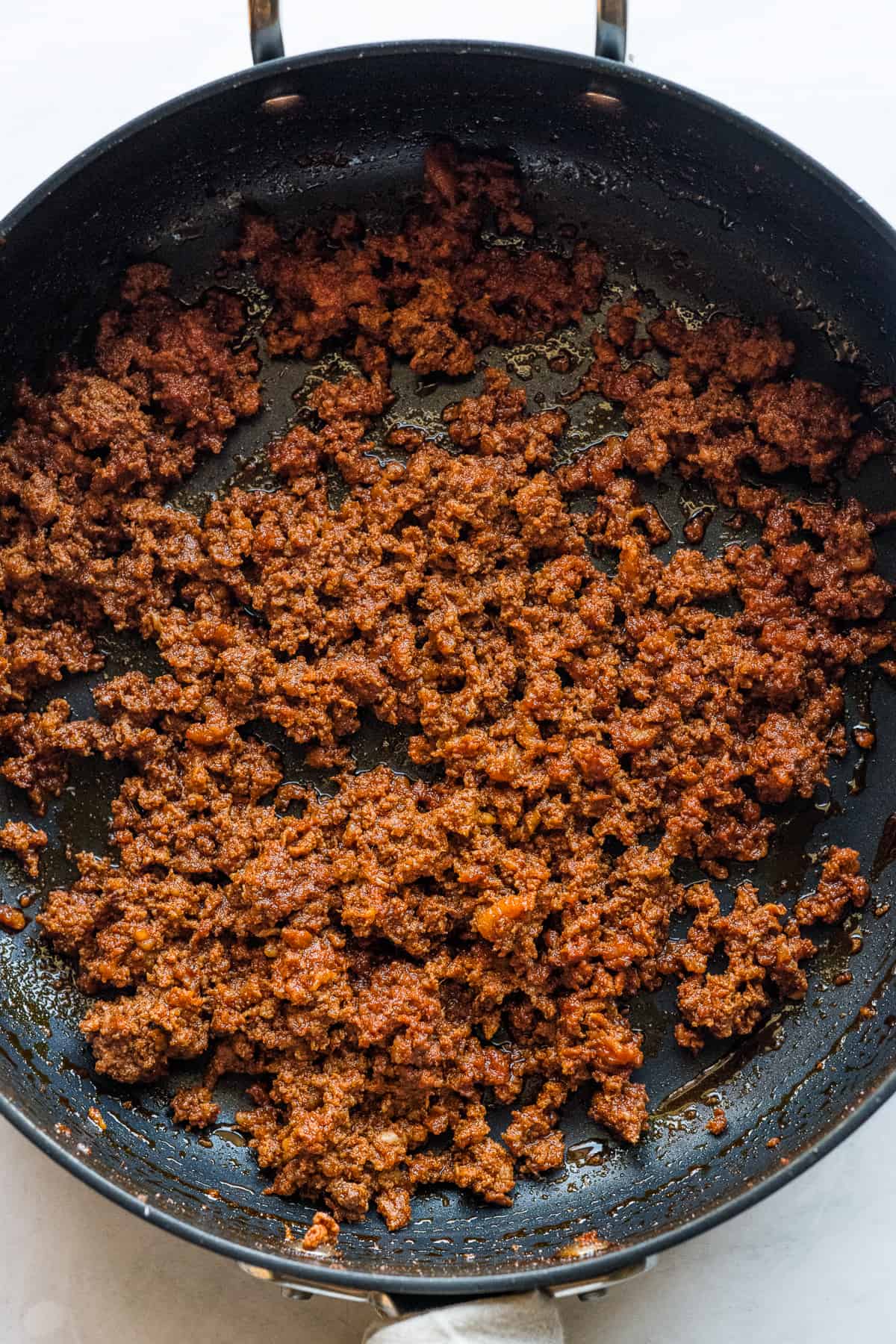
What is Chorizo?
Chorizo is a highly seasoned pork sausage that is very popular in both Mexican and Spanish cooking. It’s a staple in many of the Mexican dishes that I make here on Isabel Eats. Mexican chorizo is a very fatty and highly seasoned sausage typically made from ground pork. However, it can also be made from ground beef, chicken, venison, turkey, and soy.
The most popular type of Mexican chorizo has a distinct red tint due to the spices and seasonings that are used to make it. Typically, the seasoning in chorizo includes some or all of the following:
- Chile peppers – guajillo or ancho chiles are the most common.
- Coriander
- Cloves
- Cinnamon
- Garlic
- Cumin
- Paprika
- Vinegar
Here’s my homemade chorizo recipe!
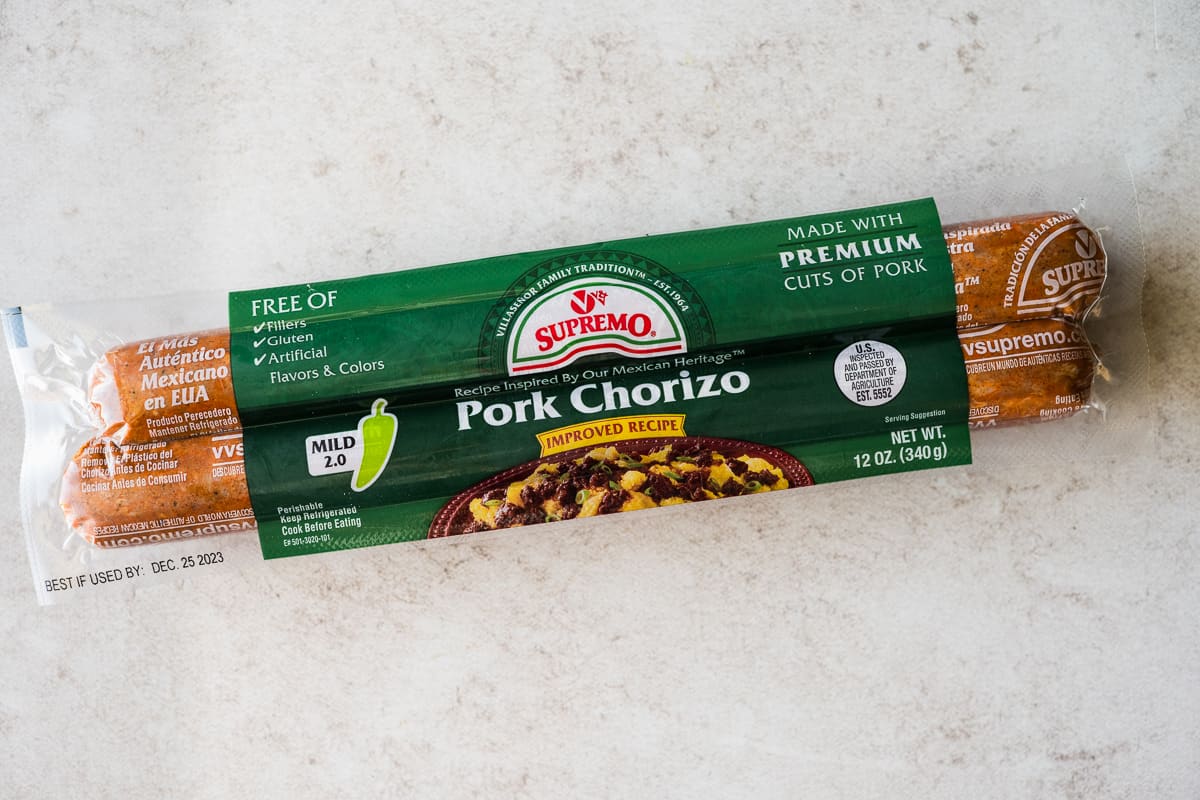
Mexican Chorizo versus Spanish Chorizo
While I mainly use Mexican chorizo in my recipes, it’s good to know that chorizo comes in two forms: the Mexican version and the Spanish version.
The main difference is that Mexican chorizo is fresh and must be cooked before consumption. Spanish chorizo is dried and cured.
Mexican chorizo can be loose like any other ground meat or in a casing like a regular sausage. However, the casing is not edible and must be removed before cooking. Mexican chorizo can be cooked on its own or with other ingredients like peppers, onions, rice, and more.
Spanish chorizo can be found in most grocery stores, along with other meats prepared in a similar way, like pepperoni and salami. The casing is edible, and you don’t need to cook it to enjoy it. As a result, it can also be added to soups and stews. It’s also very popular on tapas platters. Spanish chorizo comes in smoked and unsmoked varieties that range from mild to very spicy. It always contains smoked paprika, which gives it a distinctive color and flavor.
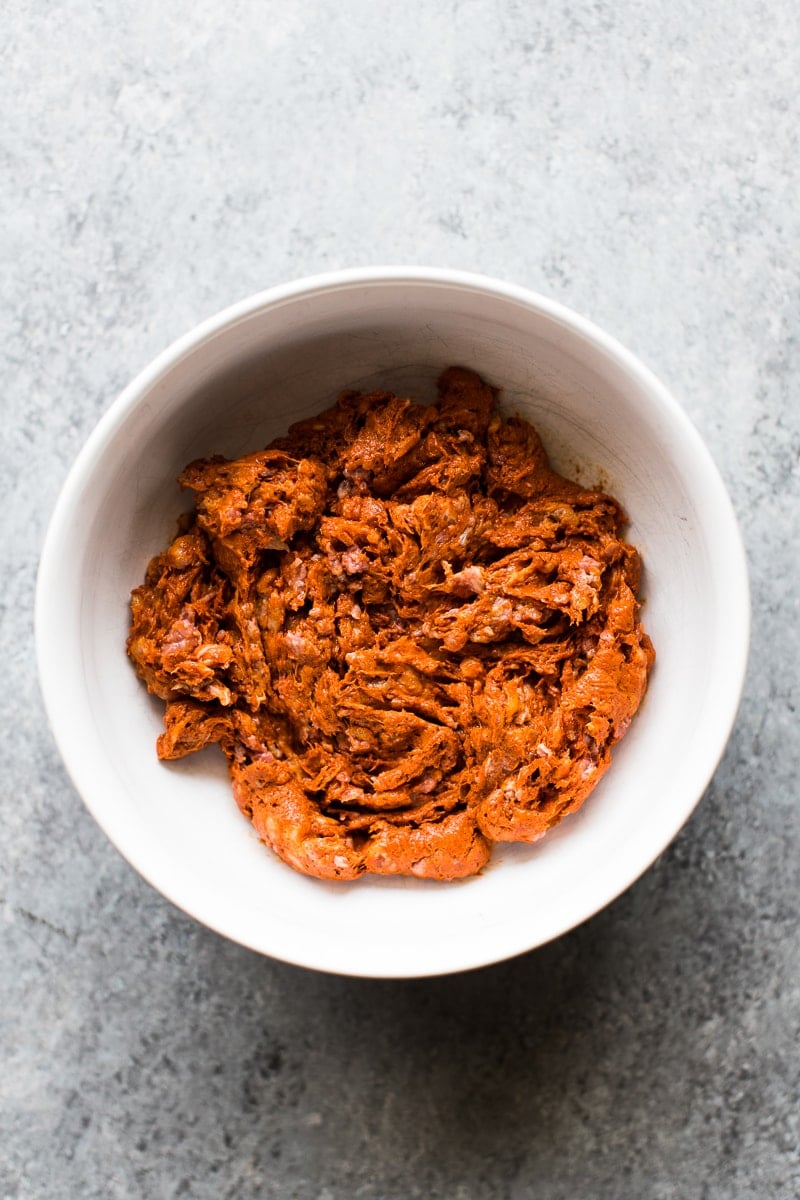
How to Cook Mexican Chorizo
To cook with Mexican chorizo, you must first remove it from the casing. As a result, it will crumble as it cooks and will look a lot like ground beef when fully cooked. It’s a great alternative to other ground meats and is also delicious when mixed into things like homemade meatballs since it can add a lot of flavor and fat.
Chorizo Recipe Ideas
Chorizo is a versatile ingredient that adds lots of bold flavors. You can use it in a variety of ways, including fillings, garnishes, dinners, sides, etc. Here are some ideas:
- Make the ultimate Mexican breakfast with chorizo and eggs or breakfast tacos.
- Warm up with Mexican chorizo chili.
- Make everyone’s new favorite party appetizer with queso fundido, or crumble chorizo on top of queso blanco.
- Keep it simple with delicious chorizo tacos.
- Mix it into lucious frijoles puercos.
- Sprinkle chorizo crumbs on top of taco pizza for extra flavor.
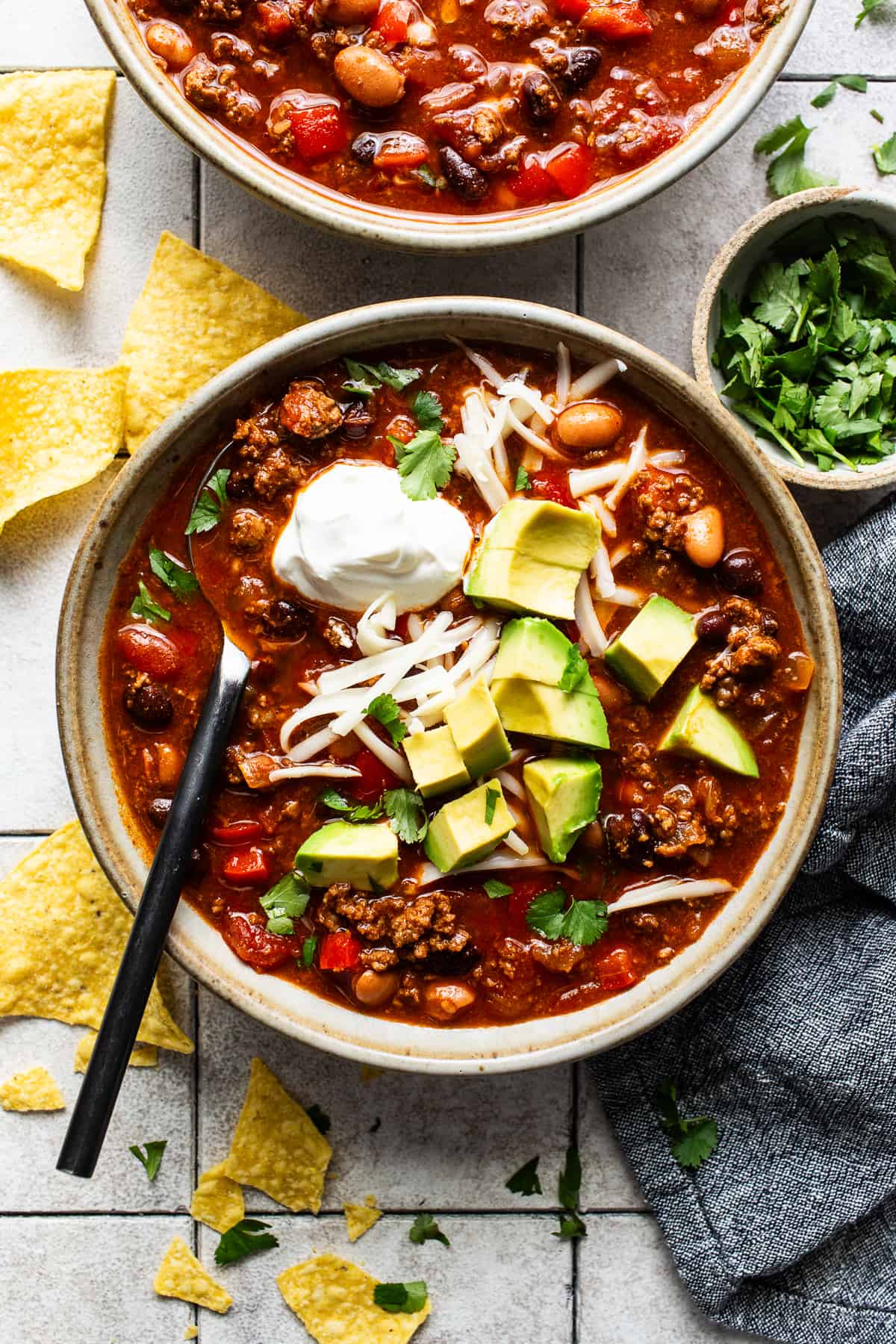
Chorizo Variations
Chorizo is typically made of ground pork, but you can use other variations of it as well:
- Beef chorizo: Beef chorizo is the next common version that you can find in most grocery stores. It has the same level of spice and flavor but usually isn’t as fatty as ground pork.
- Homemade chorizo: Making your own Mexican chorizo is super simple! You can use my homemade chorizo recipe when you’re wanting a less processed version.
- Vegetarian chorizo: You can easily use tofu to make a vegan/vegetarian version of chorizo! Use super-firm tofu that’s been patted down and rid of any excess moisture, crumble, cook as normal, and season using the ingredients in my recipe to make chorizo.
Storage
Store-bought chorizo will have an expiration date.
Homemade raw chorizo can be stored in the refrigerator in an airtight container for up to 2 days or frozen for up to 3 months until ready to cook.
More Recipes That Use Chorizo
This post was originally published in April 2022 and has been updated with more helpful information.

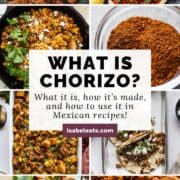
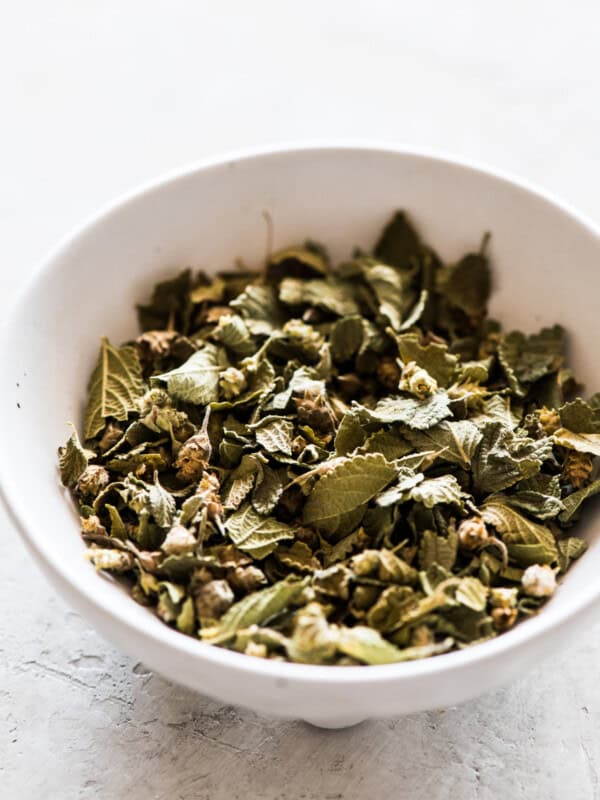
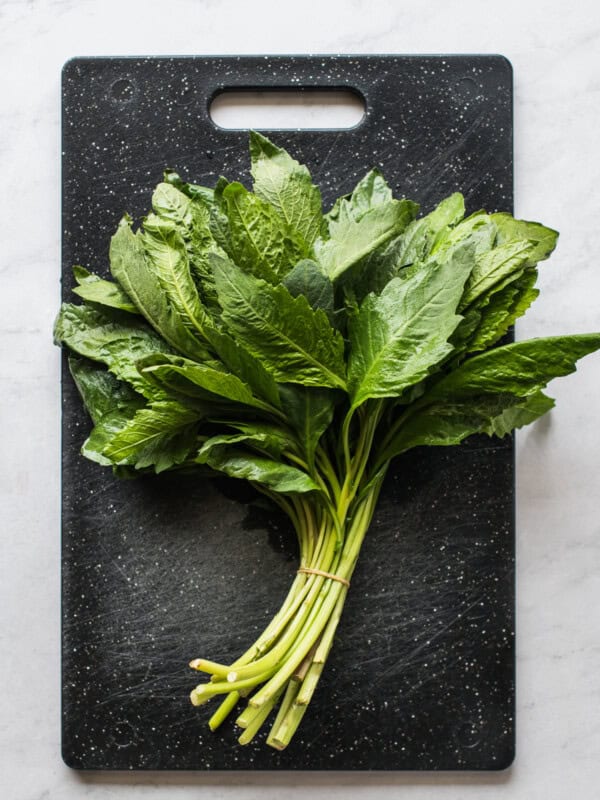
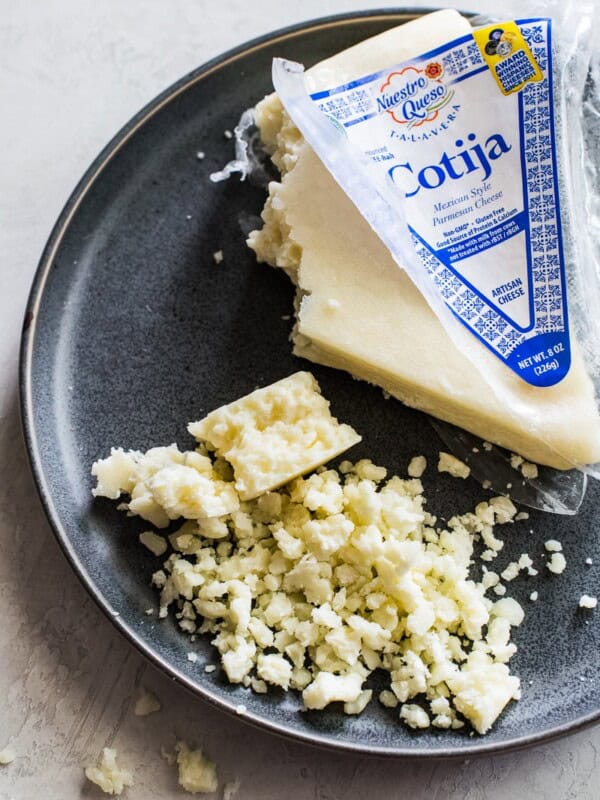
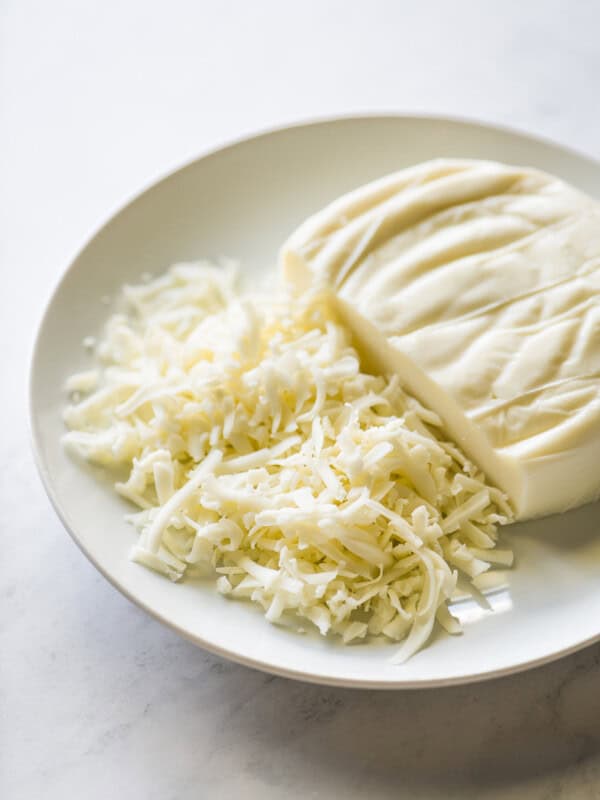









Thanks Isabel I have 1 lb of Mexican Ground Chorizo in my freezer and have been looking for hat to do with it,as I am owing through my inventory the pandemic you know!
Thanks for the information. I tried mixing the cooked chorizo with white beans and served corn bread on the side. Kentucky and Mexico came together beautifully
I really like the flavor and texture of Soyrizo, which is a non-meat variety of Chorizo. There are several brands of Soy Chorizo but “Soyrizo” is the best. IM not a vegetarian (at all) and i buy this product because I prefer its flavor and texture. However, I also like (Mexican style) Chorizo made of any meat. I should say I just had a Soyrizo, papas y huevos burrito with cheese for breakfast
I use chorizo in almost everything scrambled eggs, spaghetti sauce, mashed potatoes, cream of wheat, grits, fries potatoes, has browns, and I like the stuff that dissolves when you cook it not the stuff like hamburger.
You should look at the ingredient list on this chorizo. It’s not “pork”. It’s salivary glands etc.
love ur blog. how send u $$ for ur efforts? feel bad getting these great recipes free. Pus they are so good. Must take a lot of work
Great article! Learned a lot. Please consider that a blanket statement saying Mexican chorizo casing is not edible is inaccurate. If the casing is made from pork intestine, like at Típico Chorizo in Gardena, CA, every part of the links is edible because all the ingredients are natural and super high quality. You cook their links just like sausage, And when it’s done you can slice it or you can crumble it, your choice. Each link is even hand tied with corn husk! Oh, and no lymph nodes or other junk. It’s my personal favorite and I thought I’d give Tipico a shout out as well as let you know that some casings are edible. 🙂
Are any nitrites used in Spanish chorizo, or Mexican ?
Hi Paul! I don’t believe so but always double check the food label to be sure.
Do you have a recipe for Soy Chorizo?
Hi Stephanie! Right now we don’t, but there are lots of other great food blogs that may have that exact recipe for you.